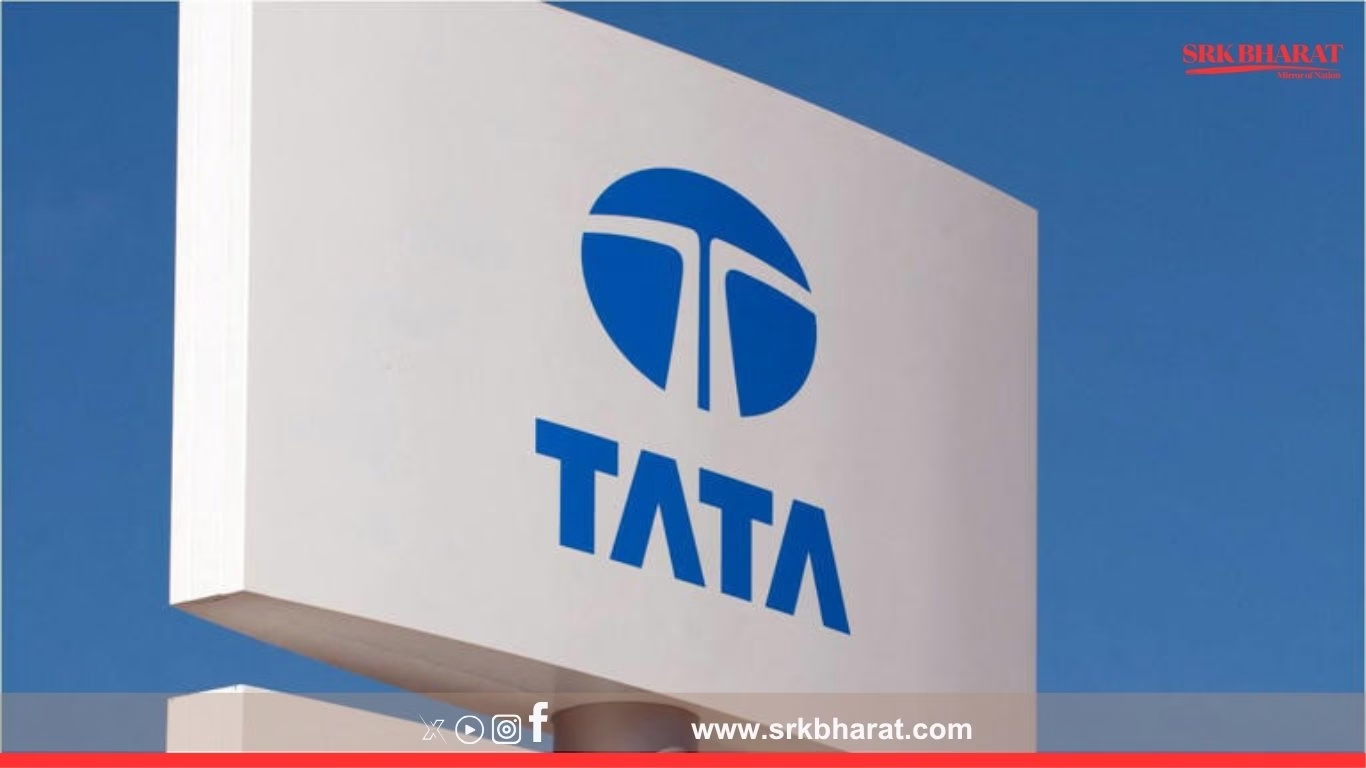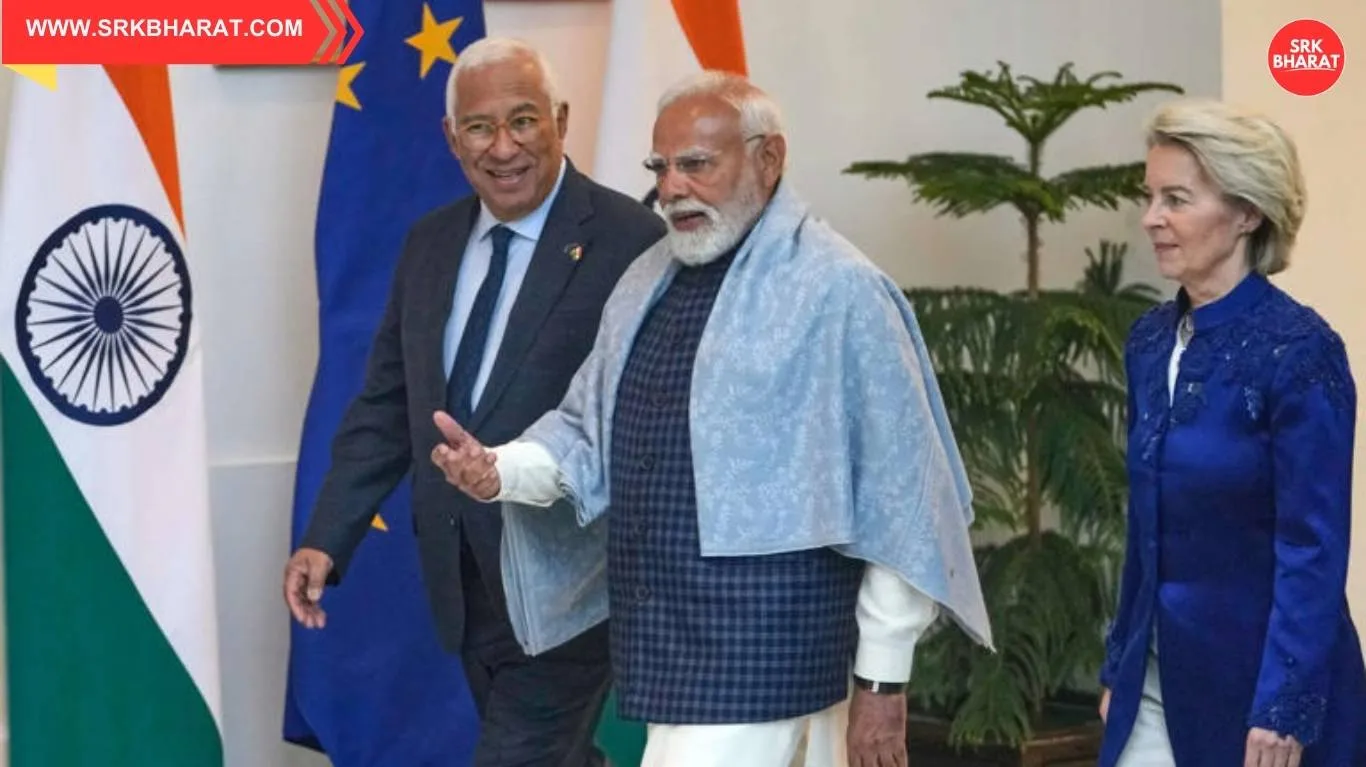Tata Motors, one of India’s leading automobile manufacturers and a flagship of the Tata Group, witnessed a sharp decline of over 4% in its share price during early trading hours, following media reports suggesting that the company is in advanced talks to acquire Italy-based commercial vehicle manufacturer Iveco. The deal, which is speculated to be valued around $4.5 billion, has sparked both interest and concern among investors and industry watchers.
The proposed acquisition, if materialized, could mark one of the largest outbound M&A deals by an Indian company in the automotive sector. However, the immediate market response reflects investor anxiety over the potential implications of such a large-scale purchase on Tata Motors’ financials and capital structure.
Market Reaction: Investor Sentiment Turns Cautious
Following the news, Tata Motors’ stock price tumbled more than 4.1% intraday on the NSE, closing the session at ₹912.50, down from its previous close of ₹951.65. Trading volumes also spiked significantly, indicating heightened investor activity and profit booking.
| Date | Opening Price (₹) | Day’s Low (₹) | Closing Price (₹) | % Change |
|---|---|---|---|---|
| July 29 | 945.80 | 905.60 | 912.50 | -4.11% |
| July 26 | 951.00 | 947.10 | 951.65 | +0.07% |
Investor reaction was largely influenced by concerns over debt levels, integration risks, and the company’s existing capex commitments, particularly in EVs and infrastructure expansion.
Deal Details: What Is at Stake in the Iveco Acquisition
According to early reports, Tata Motors is evaluating the acquisition of a controlling stake in Iveco Group, a global manufacturer of light, medium, and heavy commercial vehicles, headquartered in Turin, Italy. The deal is expected to include:
- Acquisition of Iveco’s commercial vehicle operations
- Access to production facilities in Europe and Latin America
- Integration of advanced technology platforms
- Strengthening Tata’s global supply chain in LCV and HCV segments
The potential acquisition aligns with Tata Motors’ global expansion strategy, especially in the CV (Commercial Vehicles) segment, where competition from European and Chinese players is intensifying.
Strategic Synergies and Challenges
Tata Motors already operates one of the largest CV businesses in India and owns Jaguar Land Rover (JLR) in the UK. By acquiring Iveco, the company aims to:
- Enhance its global commercial vehicle footprint
- Tap into new markets in Europe and South America
- Gain access to clean fuel technologies, especially in hydrogen and LNG
- Leverage existing Iveco dealership and servicing networks
However, the deal also brings potential hurdles:
| Potential Synergies | Key Challenges |
|---|---|
| Geographic expansion in EU | Cultural and operational integration |
| Access to new engine tech | Regulatory approvals in multiple zones |
| Strengthening EV truck portfolio | High financial leverage |
| Diversification from China market | Managing JLR and Iveco parallelly |
Tata Motors’ Balance Sheet Position
As of the latest quarterly report, Tata Motors has shown improved financials, bolstered by strong JLR sales, particularly in China and North America. The company’s net debt stood at ₹39,000 crore at the end of Q1 FY25, a significant improvement over previous years.
| Financial Metric | Q1 FY25 | Q4 FY24 |
|---|---|---|
| Revenue | ₹1.23 lakh crore | ₹1.17 lakh crore |
| EBITDA Margin | 14.7% | 13.4% |
| Net Profit | ₹6,165 crore | ₹5,407 crore |
| Net Automotive Debt | ₹39,000 crore | ₹42,500 crore |
Despite the gains, analysts caution that a deal of this size could pressure cash flows and may require equity dilution or bridge financing, unless Tata opts for structured acquisition methods through subsidiaries or SPVs.
Expert Views: Mixed Sentiment in Analyst Circles
Brokerages and market analysts have responded with caution, emphasizing the potential long-term strategic benefits but raising red flags over near-term financial strain.
“While Iveco’s acquisition could position Tata Motors as a formidable global CV player, the company needs to assess financing risks and maintain focus on its EV and JLR transformation plans,” said a Mumbai-based analyst from a leading brokerage.
“This is a bold move, but with global economic uncertainty and volatile freight markets, timing and integration will be critical,” remarked an auto industry expert.
What Iveco Brings to the Table
Iveco is currently valued at approximately €3.8 billion (equivalent to $4.1–4.5 billion), and operates in more than 25 countries with a workforce of over 34,000 employees. It is best known for its daily vans, Eurocargo trucks, and Stralis long-haul vehicles.
| Iveco Metrics (2024) | Value |
|---|---|
| Revenue | €14.1 billion |
| EBITDA | €1.3 billion |
| Units Sold (Worldwide) | 1.6 million |
| Core Markets | Italy, Germany, Brazil |
| Employee Strength | 34,000+ |
The company also has partnerships in natural gas mobility and hydrogen powertrains, areas where Tata Motors has started early investments but still lacks scale and maturity.
Industry Context: CV Market Consolidation Trends
Globally, the commercial vehicle industry is witnessing consolidation as companies seek economies of scale, clean technology leadership, and protection from market volatility.
- Volvo Group acquired UD Trucks from Nissan
- Daimler merged with Volvo’s hydrogen mobility unit
- CNH Industrial spun off Iveco to focus on agriculture and construction
This potential acquisition may set a new benchmark for Indian MNCs in outbound deals and show confidence in long-term demand growth for freight and mobility infrastructure.
Tata Group’s Global Ambitions and Legacy
The Tata Group has a long history of successful overseas acquisitions, from Tetley Tea in the UK, Corus Steel, to JLR. However, it has also weathered turbulent outcomes in Daewoo Commercial Vehicles (Korea) and Tata Nano’s struggles. With a renewed focus on sustainability, ESG compliance, and profitable growth, this acquisition—if confirmed—will be closely scrutinized for execution efficiency.
The Road Ahead: What Should Investors Watch?
As speculation continues, the coming weeks will be crucial in determining the direction of this potential megadeal. Investors will watch for:
- Official confirmation or denial from Tata Motors
- Funding structure: equity, debt, or JV
- Regulatory clearances across EU and India
- Strategic roadmap on integration
- Potential impact on existing capex and JLR plans
Any positive clarity could ease current investor concerns and restore confidence in Tata Motors’ long-term value strategy.
Disclaimer: The content provided in this article is based on publicly available data and market speculation. It is intended for informational purposes only and should not be considered financial or investment advice. Readers are encouraged to consult their financial advisor before making investment decisions.











